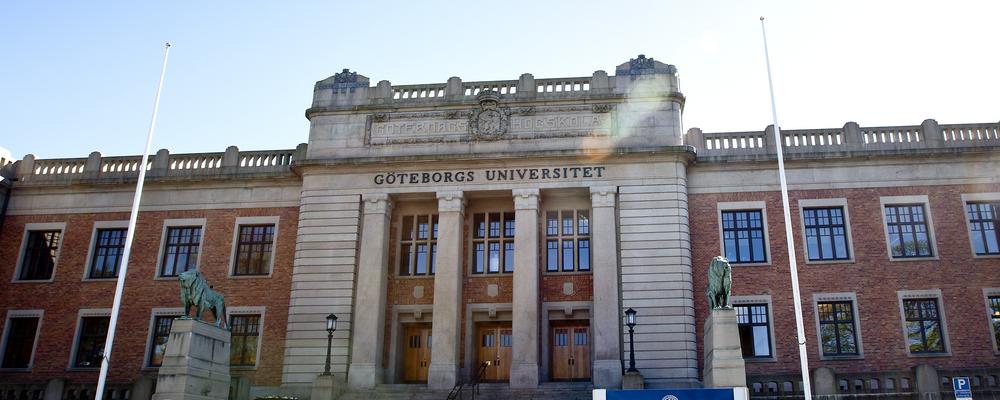
- Home
- News and events
- Find news
- Psychologist and political scientist new Wallenberg Academy Fellows
Psychologist and political scientist new Wallenberg Academy Fellows
The brain's capacity for change and who really runs the world is the research focus of the two young researchers from the University of Gothenburg who have been appointed Wallenberg Academy Fellows.
Since 2012, the Knut and Alice Wallenberg Foundation has appointed young researchers as Wallenberg Academy Fellows. This means a research grant for five years and the opportunity to take part in a mentoring program. The program also contributes to increased internationalization of the Swedish research environment. 31 young researchers have been appointed this year, including two from the University of Gothenburg: psychologist Gaia Olivo and political scientist Jacob Nyrup.
How does the brain change when we practice new movements?
When we learn things, such as playing the piano or doing flips on the
trampoline, new connections are created between the different parts of the brain. Wallenberg Academy Fellow Gaia Olivo is investigating how the brain changes when we train new skills. For example, why does the volume of the brain's gray matter increase when we practice a movement?
Researchers say that our brain is plastic - it has an incredible ability to create new connections between neurons and different parts of the brain. This allows us to quickly learn new things and coordinate movements that we have never done before.
When researchers have investigated how the brain changes as a result of learning, they have been surprised to find that it seems to happen very quickly. For example, within just a few minutes, the volume of the brain's gray matter, which contains many neurons, increases. But is this because the brain has started to form new neural connections and is being rebuilt? Or is it just that the blood flow to the brain is increasing as we use it?
These are the questions that Dr. Gaia Olivo, University of Gothenburg, is trying to answer. Using the latest brain imaging technology, she will study in detail changes in the brains of both mice and humans practicing new motor skills. She will also investigate whether it is possible to predict individual differences in brain plasticity and how long the changes in the brain are preserved after motor training. It is hoped that this knowledge will improve support for people who need to exercise their cognitive abilities, for example after a stroke.
A systematic mapping of political leaders
Who rules the world? And what are the consequences? This is the the
main questions in the research conducted by Wallenberg Academy Fellow Jacob Nyrup. He has created the world's largest database of political leaders, WhoGov. Now he will further develop the database.
Governments around the world make daily decisions that affect our lives. These decisions are often covered by the media, but we know less about who actually holds political power globally.
To get a better picture of the world's political power holders, Jacob Nyrup, Associate Professor at the University of Oslo, has created a unique database, WhoGov, which contains detailed information about those who have governed in 177 of the world's countries from 1966 to 2021. Now he will further develop WhoGov so that the database is more detailed and more developed. For example, it will also cover the period 1849-1966, providing greater opportunities to map history. All the collected data will be freely and easily accessible on a newly developed online platform.
Once the database is updated, Jacob Nyrup will use it to seek answers to several new questions. For example, he will explore how well political leaders in different countries represent the country's population and how this in turn affects voters' views of the political system. He will also look at the role of women in governments, and how political elites in dictatorships can influence autocrats and their decisions to initiate conflicts.
Jacob Nyrup will work at the University of Gothenburg as a Wallenberg Academy Fellow.
Previous fellows
Since 2019, the University of Gothenburg has: Anne Björkman (natural sciences), Thorsten Berger (computer and information technology), Hiroki Shibuya, Linda Johansson and Davide Angeletti (medicine).